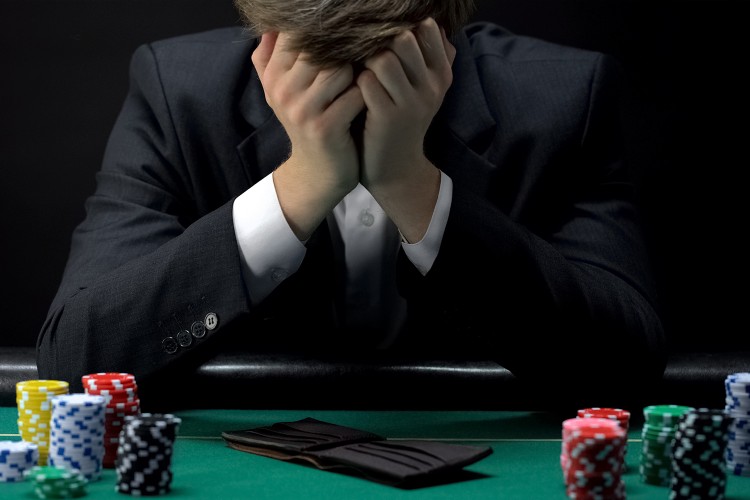
Study finds problem gamblers less responsive to risk when placing bets

People with gambling problems – compared to those without – pay more attention to irrelevant information from the previous gamble to inform their next choice. As a result, problem gamblers are less likely to consider information about future risk and reward that could prevent them from losing, according to newly published UBC research.
The research was led by the Centre for Gambling Research at UBC, part of the UBC department of psychology, and included co-authors from the UBC Sauder School of Business, the UBC department of medicine, the UBC department of ophthalmology, the Djavad Mowafaghian Centre for Brain Health at UBC, and the department of psychology at West Virginia University.
“Our research may help explain why individuals with gambling disorder continue to gamble in the face of mounting losses, and on games that have a very small chance of winning,” said Dr. Eve Limbrick-Oldfield, the study’s lead author and a postdoctoral research fellow at the UBC department of psychology and Centre for Gambling Research.
To conduct the study, the researchers recruited two groups of participants, 48 of whom have gambling disorder and 35 control participants. The participants were asked to complete a computerized decision-making task where they repeatedly chose between two simple gambles. The two gambles varied in prize amount and chance of winning – one gamble had a smaller prize, but higher chance of winning while the other had a larger prize, but a smaller chance of winning—a classic risk-reward tradeoff. The participants were given all the information that was needed to make an optimal decision.
“We found control participants paid attention to both the prize size and chance of winning when choosing between the lotteries but those with gambling disorder were more likely to ignore that information. Instead, they relied on whether they won or lost in the last gamble to make a decision,” said Dr. Limbrick-Oldfield. “The finding can be easily translated into real-world gambling situations. For example, someone using a slot machine that hasn’t paid out in a while can believe that the machine is somehow ‘due’ a win.”
This study is the first of its kind to examine whether win size and probability information have an effect on how individuals with gambling disorder make decisions. The findings support the hypothesis that individuals with gambling disorder are susceptible to irrelevant sources of information to guide gambling decisions.
The researchers do not know whether this impaired decision-making is a cause of the gambling disorder or is a consequence of prolonged gambling but they hope to find out in future research. They are currently working on another study that uses eye-tracking to see if problem gamblers pay more attention to certain information given to them.
The research team also hope the findings could be used when building algorithms for online gambling websites to identify those gamblers who might be at risk of having a gambling problem.
“One of the benefits of combining expertise from many departments at UBC,” said Dr. Dale Griffin, professor in the Marketing and Behavioural Science Division at the UBC Sauder School of Business, “is that we can learn fundamental information about how the brain works to make decisions even as we work with the Centre for Gambling Research to build better policy to reduce the risk of gambling disorder.”